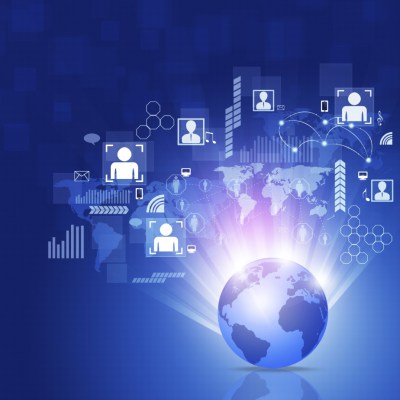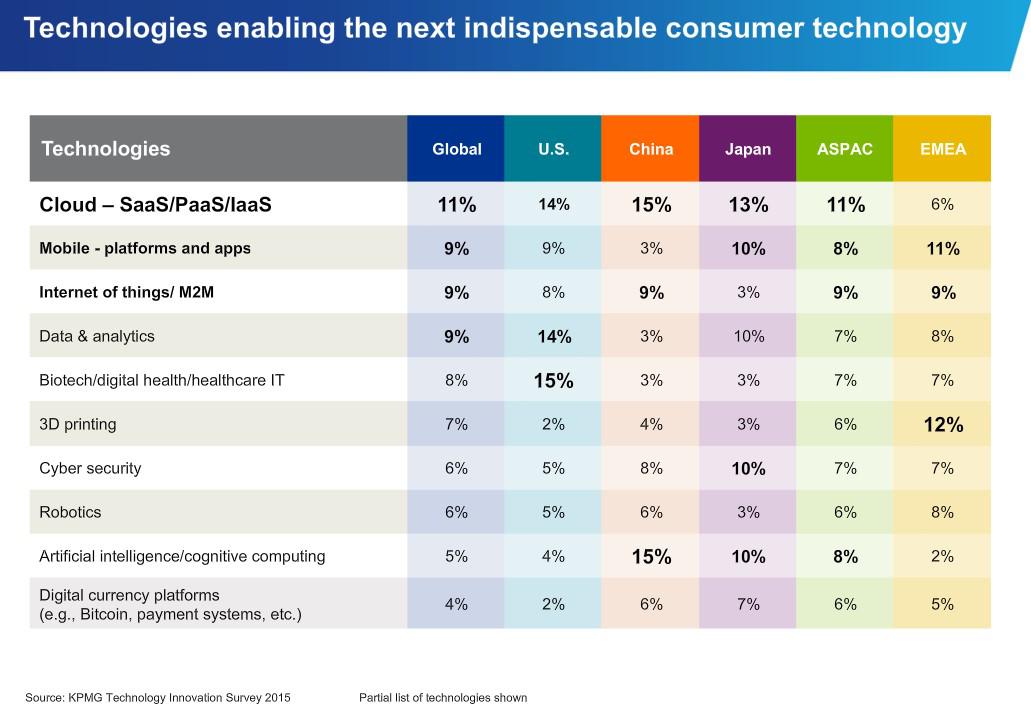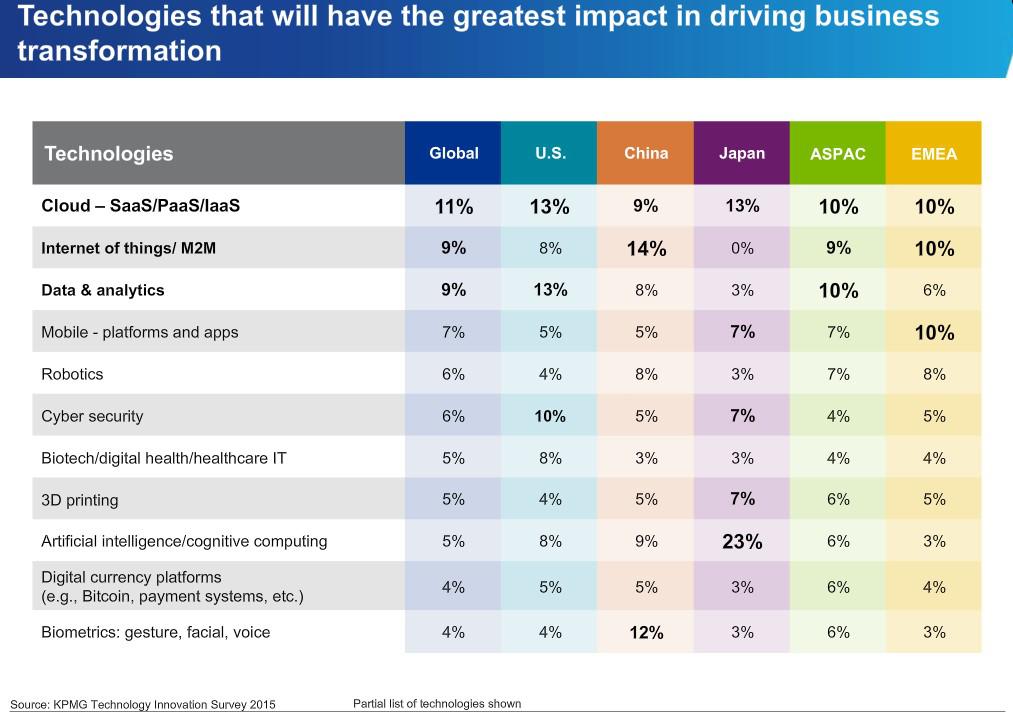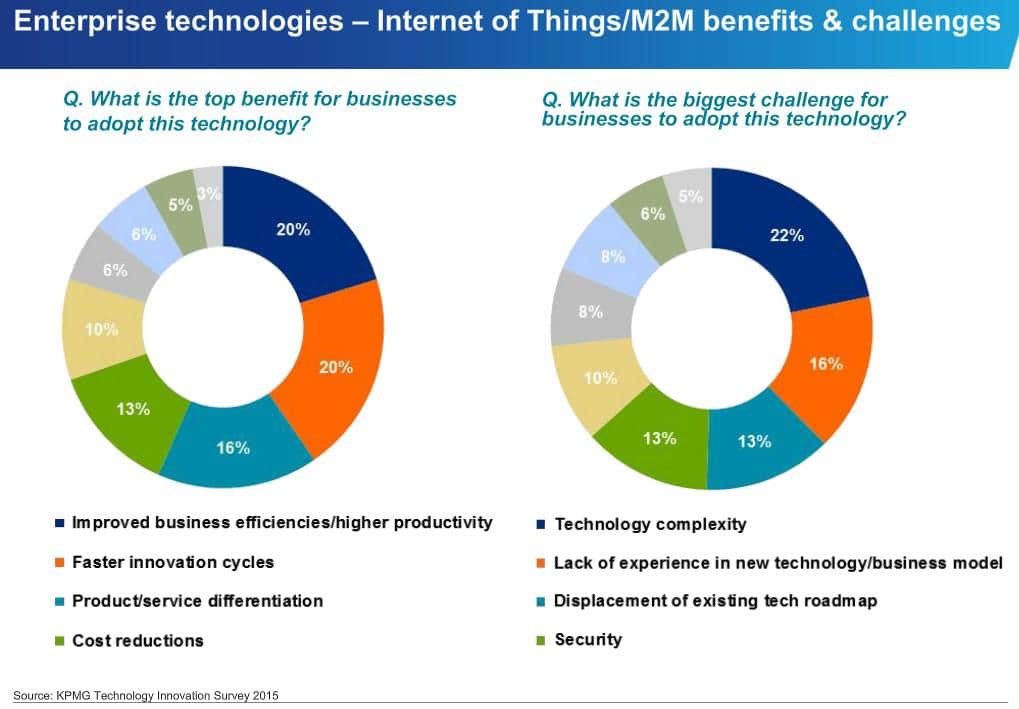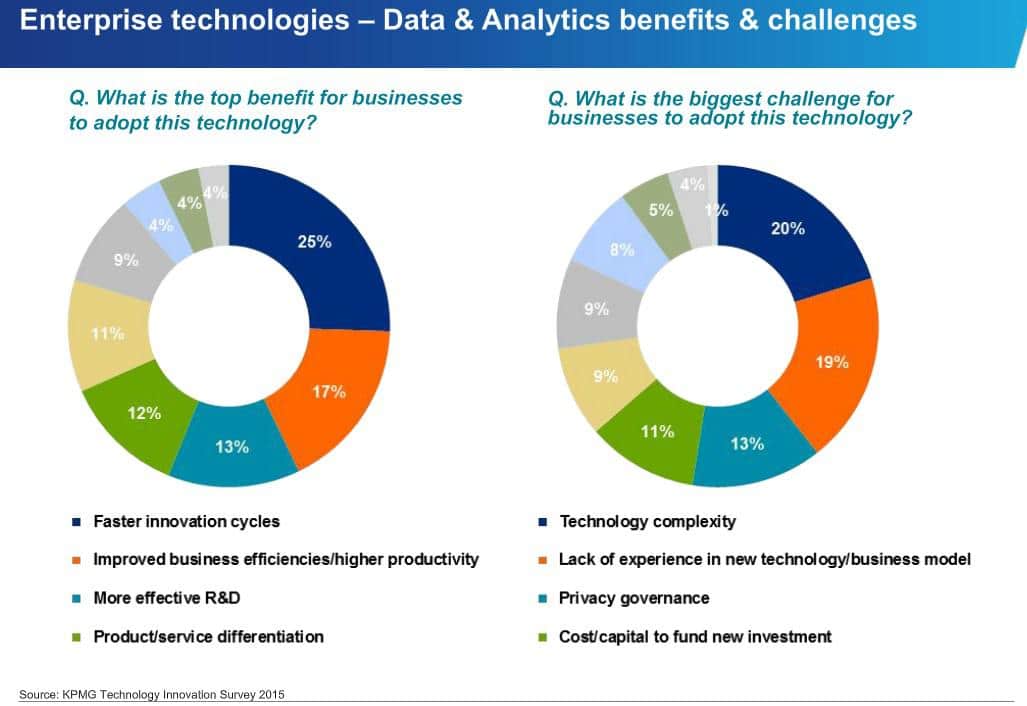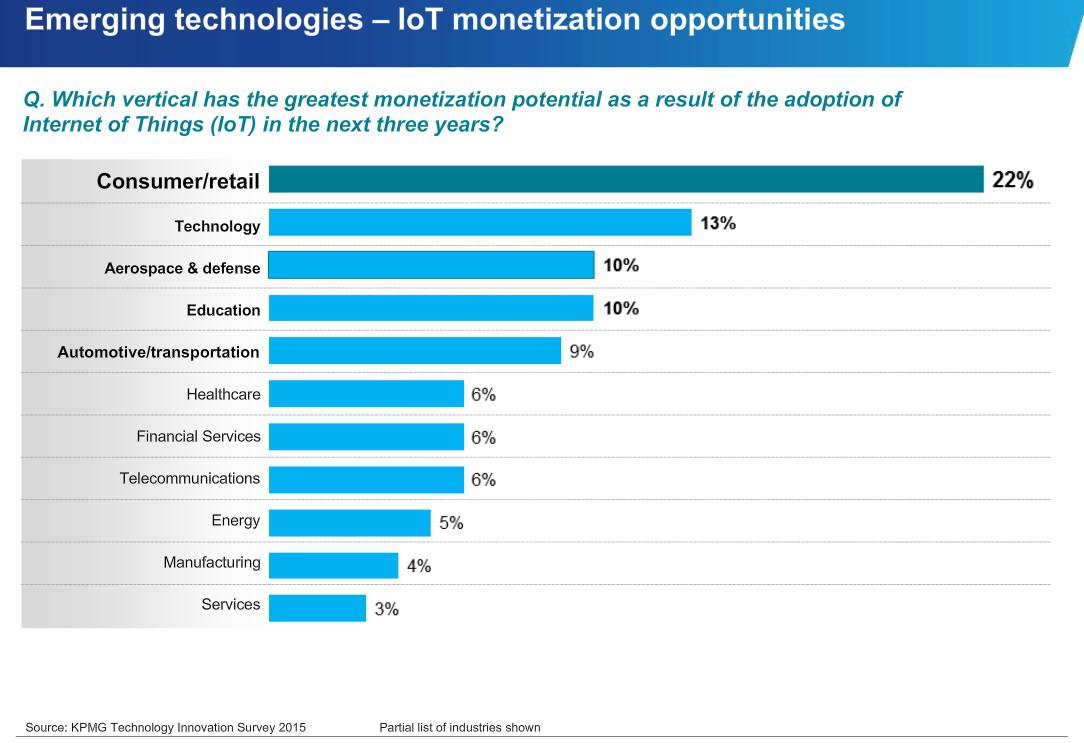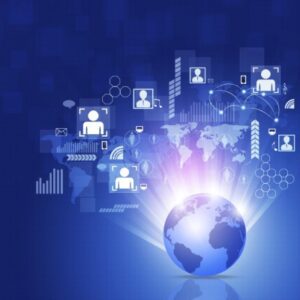 15% of U.S. tech leaders see biotech/digital health/healthcare IT as the most disruptive consumer-driven technology in the next three years.
15% of U.S. tech leaders see biotech/digital health/healthcare IT as the most disruptive consumer-driven technology in the next three years.- 13% of U.S. tech leaders predict data and analytics will be the most disruptive enterprise technology in three years.
- Global tech leaders predict cloud computing (11%), mobile platforms and apps (9%), Internet of Things (IoT)/machine-to-machine (M2M) (9%) and data and analytics (9%) will be the most disruptive technologies over the next three years.
These and many other insights are from the fourth annual 2015 Global Technology Innovation Survey released via webcast by KPMG last month. KPMG surveyed 832 technology industry business leaders globally, with the majority of being C-level executives (87%). Respondents were selected from a broad spectrum of businesses including tech industry startups, mid- and large-scale enterprises, angel investors and venture capital firms. For an in-depth explanation of the survey methodology, please see slides 6 and 7 of the webinar presentation. The goals of the survey include spotting disruptive technologies, identifying tech innovation barriers and opportunities, and tracking emerging tech innovation hubs.
The five insights and predictions from the report include the following:
- Global tech leaders predict cloud computing (11%), mobile platforms and apps (9%), Internet of Things (IoT)/M2M (9%) and data and analytics (9%) will be the most disruptive technologies over the next three years. U.S. tech leaders predict biotech/digital health/healthcare IT (15%), data and analytics (14%) and cloud computing (14%) will be the three most disruptive technologies over the next three years. Chinese tech leaders predict artificial intelligence/cognitive computing (15%) will be the most disruptive technology impacting the global business-to-consumer (B2C) marketplace.
- The three most disruptive technologies predicted to drive business transformation in enterprises over the next three years in the U.S. include cloud computing (13%), data and analytics (13%), and cyber security (10%). Japanese tech leaders predict artificial intelligence/cognitive computing will have the greatest effect (23%), and 14% of Chinese tech leaders predict the Internet of Things/M2M (14%) will have the greatest impact on business transformation in their country. The following table compares global tech leader’s predictions of which technologies will disrupt enterprises the most and drive business transformation over the next three years.
- Improving business efficiencies/higher productivity, and faster innovation cycles (both 20%) are top benefits tech leaders globally are pursuing with IoT strategies. The point was made on the webinar that in Asia, consumers are driving greater adoption of IoT-based devices to a richer contextual customer experience. Greatest challenges globally to adopting IoT is technology complexity (22%), lack of experience in the new technology or business model (16%), and both displacement of the existing tech roadmap and security (both 13%).
- Analytics are most often adopted to gain faster innovation cycles (25%), improved business efficiencies and higher productivity (17%) and more effective R&D (13%). The greatest challenges are technology complexity (20%) and lack of experience in the new technology or business model (19%),
- Tech leaders predict the greatest potential revenue growth for IoT in the next three years is in consumer and retail markets (22%). IoT/M2M is also expected to see significant revenue growth in technology industries (13%), aerospace and defense (10%), and education (9%). The following graphic compares tech leader’s predictions of the industries with the greatest potential revenue growth (or monetization potential) in the next three years.
Sources:
Tech Innovation Global Webcast presenting the findings of KPMG’s 2015 Global Technology Innovation Survey, KPMG Survey: Top Disruptive Consumer Tech – AI In China, Healthtech In U.S., 3-D Printing In EMEA
